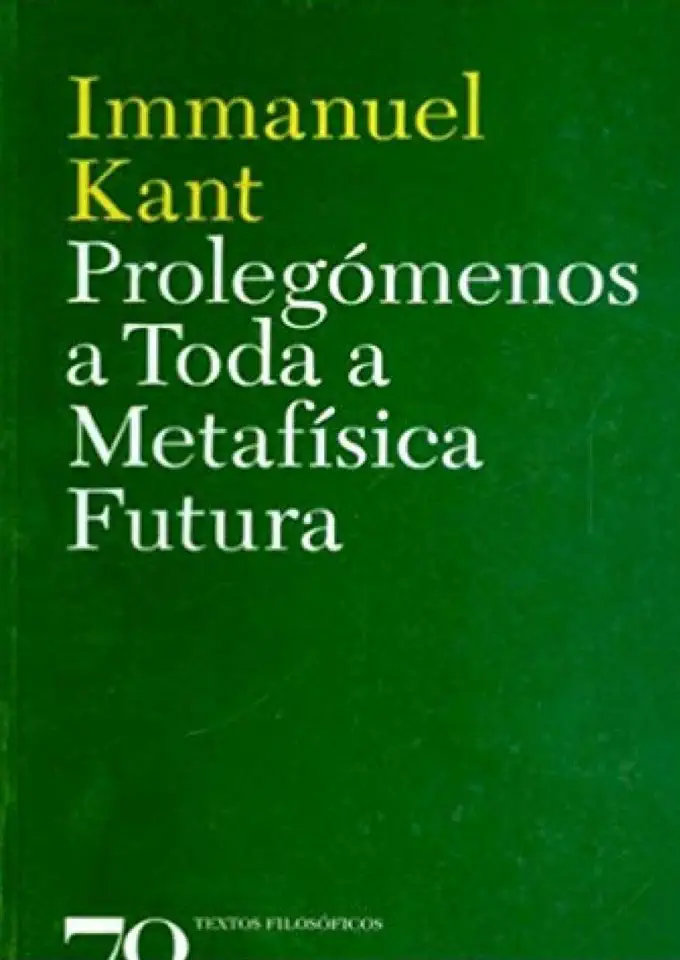
Prolegomena to Any Future Metaphysics - Immanuel Kant
Introduction
In his groundbreaking work, "Prolegomena to Any Future Metaphysics", Immanuel Kant sets out to establish a new foundation for metaphysics, one that is based on a critical examination of the limits of human knowledge. Kant argues that metaphysics, as traditionally conceived, is impossible because it attempts to go beyond the limits of what we can know through experience. However, he also argues that metaphysics is necessary because it provides us with a framework for understanding the world around us.
The Limits of Human Knowledge
Kant begins by arguing that human knowledge is limited to the world of experience. We can only know things that we can experience through our senses. This means that we can only know things that are in space and time. We cannot know things that are beyond space and time, such as God or the soul.
Kant also argues that our knowledge of the world is limited by the categories of our understanding. These categories are the concepts that we use to organize our experience. For example, we use the category of substance to organize our experience of objects. We think of objects as substances that have properties.
Kant argues that the categories of our understanding are not things in themselves. They are simply ways of organizing our experience. This means that we cannot know things as they are in themselves. We can only know things as they appear to us through our senses and our categories of understanding.
The Necessity of Metaphysics
Despite the limits of human knowledge, Kant argues that metaphysics is necessary. Metaphysics provides us with a framework for understanding the world around us. It gives us a way to make sense of our experience.
Kant argues that metaphysics is not a science. It is not based on empirical evidence. However, it is still a rational discipline. It is based on the principles of reason.
Kant's metaphysics is a critical metaphysics. It is based on a critical examination of the limits of human knowledge. Kant argues that we can only know things that we can experience through our senses. However, he also argues that metaphysics is necessary because it provides us with a framework for understanding the world around us.
The Transcendental Unity of Apperception
Kant's metaphysics is based on the concept of the transcendental unity of apperception. The transcendental unity of apperception is the unity of consciousness that makes it possible for us to have experience. It is the unity of consciousness that allows us to synthesize our sensations into objects.
Kant argues that the transcendental unity of apperception is the ground of all knowledge. It is the condition that makes it possible for us to have experience. It is also the condition that makes it possible for us to think.
The transcendental unity of apperception is a transcendental idea. It is not something that we can experience through our senses. However, it is a necessary condition for experience. It is the condition that makes it possible for us to have a world.
The Critique of Pure Reason
Kant's "Prolegomena to Any Future Metaphysics" is a critique of pure reason. It is an examination of the limits of human knowledge. Kant argues that human knowledge is limited to the world of experience. We can only know things that we can experience through our senses. However, he also argues that metaphysics is necessary because it provides us with a framework for understanding the world around us.
Kant's critique of pure reason is a powerful and influential work of philosophy. It has had a profound impact on the development of Western thought. It is a must-read for anyone interested in philosophy, metaphysics, or the limits of human knowledge.
Conclusion
"Prolegomena to Any Future Metaphysics" is a challenging and rewarding work of philosophy. It is a book that will change the way you think about the world. If you are interested in philosophy, metaphysics, or the limits of human knowledge, then I highly recommend that you read this book.